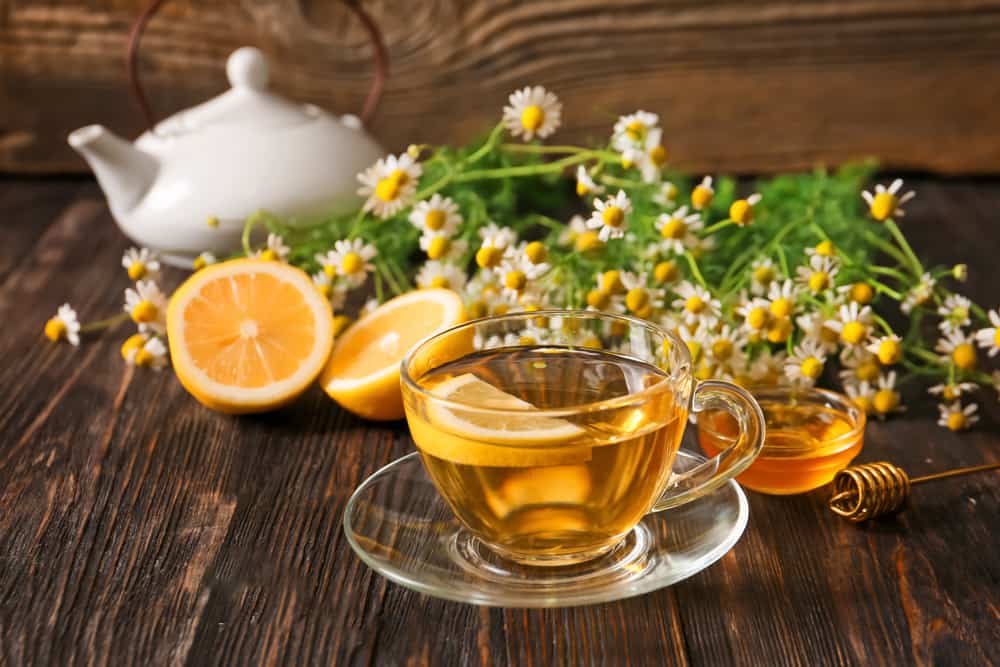Summer can be tough with allergies – but with 70 per cent of the immune system in the gut, there are foods that can help, says nutritional therapist Karen Geary

Seasonal allergies are now in full swing and, with many people suffering, it is worth considering various support options – especially if you don’t like the side effects of medications.
There are many different types of hayfever (allergic rhinitis), which is an immune response to allergens such as different types of pollen, as well as mould, damp, feathers, animal dander and dust mites.
Histamine is an inflammatory agent found in the body in a white blood cell called a
mast cell, an important part of our immune system. When they open, they release histamine into the body and generate those familiar responses – sneezing, wheezing, sore eyes, inflamed nasal passages and sinuses … all those symptoms of allergy.

Fight it with food
There are a number of familiar foods that naturally fight inflammation and help to stabilise mast cells:
Pineapple contains an enzyme called bromelain, known to fight the inflammation caused by pollen. It also contains vitamin C, which is anti-histamine.
Apples, broccoli, onions, coriander leaves, basil (including holy basil tea) all contain good amounts of quercetin, a type of bioflavonoid which has anti-inflammatory properties. However apples are a no-go if you are allergic to birch pollen. In these cases, the human immune system confuses the apple and the birch pollen allergen, causing the same reactions to the nose, mouth and throat – known as the oral allergy syndrome (an itchy mouth and a swollen tongue).
Watercress is a cruciferous vegetable with a peppery, tangy taste like rocket. It is considered one of the most nutrient-dense plants commonly available. A study showed that watercress inhibits 60 per cent of all histamines released from mast cells.
Pomegranates (including the juice) have a sweet but tart taste and are used in both savoury and sweet foods. They contain polyphenols, such as tannins and anthocyanins, and are higher in anti-oxidants than green tea. A study showed that they act as mast cell stabilisers.
Vitamin C is a natural anti-histamine, and is found in oranges, kiwi, cherries, blackcurrants, peppers, melon, kale, spinach, broccoli, parsley.
Teas, camomile or nettle. Camomile can help inhibit histamine release and nettle is anti-histamine. Peppermint tea can help clear nasal passages. Camomile is also great as an eye compress to cool swollen, red eyes.
Turmeric helps prevent mast cell activation, as well as being a great anti-oxidant.
Peaches are a potential mast cell inhibitor
Black cumin seed is an anti-histamine and a powerful anti-oxidant. The oil is great in salad dressing, or taken straight from the spoon.

Supplements
As well as adding useful foods to your diet, there are natural anti-histamine supplements that may support you in your quest for calm eyes and a clear nose.
Quercetin can be purchased in supplement form. It can inhibit the production and release of histamine by stabilising mast cells. Some of the better quercetin supplements also add vitamin C and nettle – both natural anti-histamines.
Zinc may help prevent histamine being released from the mast cells. Zinc is key in immune health.
Vitamin D is needed for mast cell stability.
There is increasing evidence that gut health may be implicated in hayfever and other allergies – yet another reason for taking care of our gut. This makes sense, given over 70 per cent of the immune system resides in the gut. The research is patchy but growing that the probiotic strain LP299V (L-Plantarum) may well help.
Histamine-generator foods
Food sensitivities are often an indicator of poor gut health, producing reactions that can manifest themselves as an allergy (or simply make your hayfever symptoms worse). Common foods include gluten, dairy, coffee, yeast, eggs and nuts.
However, just as there are anti-histamine foods, there are also foods that can generate more histamines than your body can handle, or that contain a chemical that has the ability to release histamines within the body. If you suspect this is the case, then start a food diary and keep a note of your symptoms before you see a health practitioner. You can download a tracker here.
Some perfumes and chemicals in bath and beauty products may also make things worse. Pare things back and choose natural products, like coconut oil for a body moisturiser.
You could simply dice some pineapple into your breakfast, but why not make Karen’s own thick breakfast smoothie, topped with her anti-inflammatory granola?
by Karen Geary

